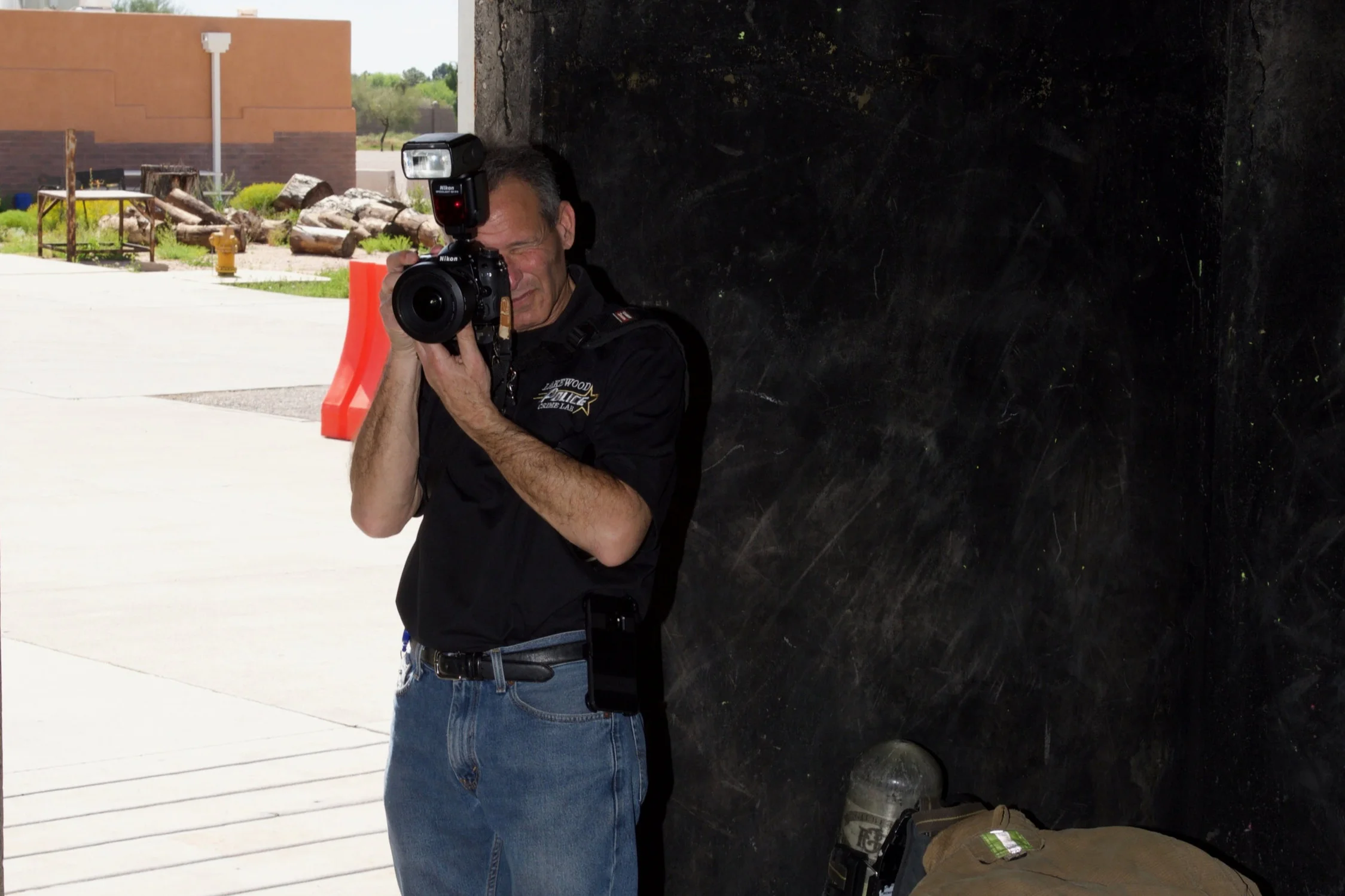Course overview
Fire scenes and charred evidence items can pose a particular challenge to investigators trying to properly document items and structures during and after a fire incident. It's important that investigators are able to take quality photos of a wide variety of subjects in conditions that are often wet, dark and exposed to the elements. This 16 hour hands-on course is designed to not only familiarize beginner to intermediate level students with the principles of forensic photography, but to also establish skills documenting crime scenes, evidence items, subjects, injuries, vehicles, and much more. Forza Forensics is committed to working with your organization's personnel to make them better equipped to handle any investigative situation.
Day One.
Students can expect to spend the first day learning how to best use their cameras to properly document a fire investigation scene. A large focus is learning how to make adjustments to their cameras in order to get a desired photograph. Lecture and practical exercise topics include:
Optics & Camera basics
Exposure triangle
Making camera adjustments
Principles of forensic photography
Using flash
Use of scales, markers and placards
Proper digital storage & storage media
Court & testimony considerations
Day one quiz
Day Two.
Day two students learn to take photographs specific to a fire investigation. Through multiple practical exercises, student are put in mock fire scene situations and asked to use the skills learned during day one to properly document items and/or structures related to a fire incident.
Fire scene photography
Over all, mid-range & close up photography
Live fire photography (when possible)
Vehicle fire photography
Low light/night photography
Evidence photography
Final exam
Course links
Fire Investigation photography course syllabus
course policies
IAAI Presentation
upcoming
Dec. 1st & 2nd, 2025
Mishawaka, IN
click here to host a course!
If you have any questions about registration email us at info@forzaforensics.com
Course requirements.
Students will need to bring any camera equipment normally carried while on duty.
This may include: DSLR camera, camera lenses, tripod, external flash, extra batteries for flash, flash cord, remote shutter release.






